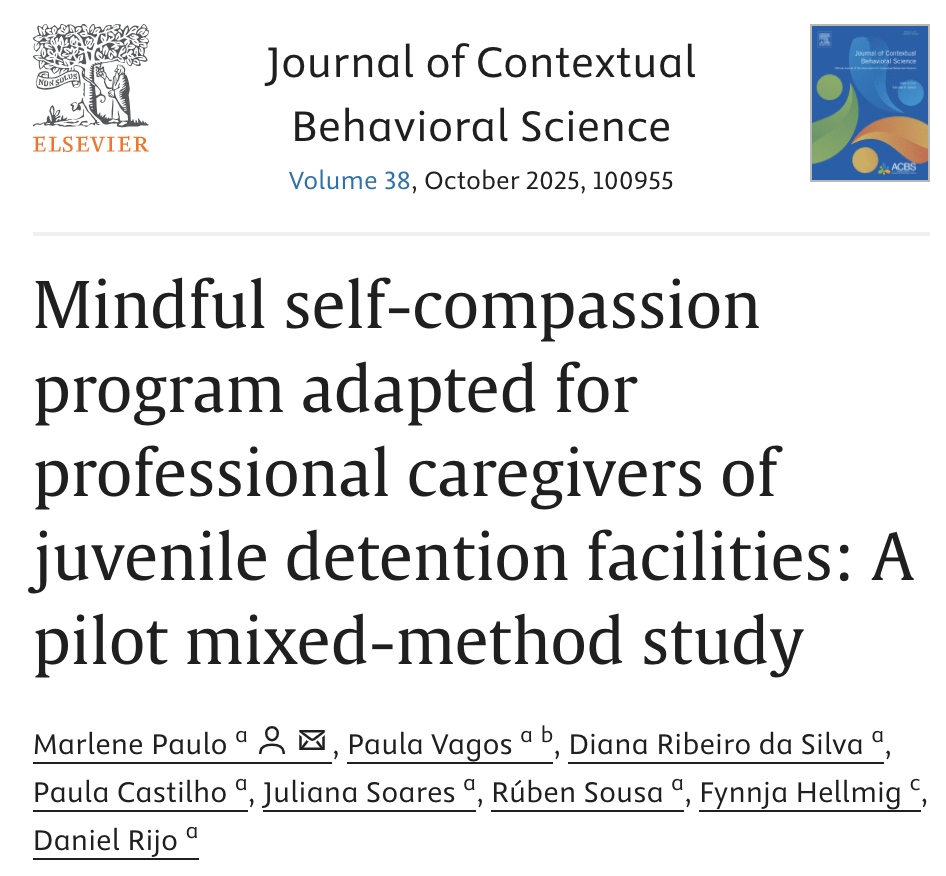Journal of Contextual Behavioral Science (JCBS)
Volume 38, October 2025
Authors
Marlene Paulo, Paula Vagos, Diana Ribeiro da Silva, Paula Castilho, Juliana Soares, Rúben Sousa, Fynnja Hellmig, & Daniel Rijo
Key Findings
- Interventions for professional caregivers working with young offenders are scarce.
- Pilot mixed-method study on the efficacy of (adapted) Mindful Self Compassion program.
- Treatment Group reduced on fears of compassion to others.
- Adapted Mindful Self Compassion is promising for caregivers of young offenders.
Abstract
Working with youth placed at juvenile detention facilities is considered a demanding and challenging job. Research shows that professional caregivers responsible for these youth are more prone to burnout syndrome and other related psychopathological symptoms. Still, while there is encouraging evidence about using compassion-based interventions or mindfulness strategies to tackle those difficulties with professional caregivers from different settings, little is known about those interventions’ effects among professional caregivers of juvenile detention facilities. To overcome this gap, this pilot mixed-method study aimed to assess the impact of an adapted version of the Mindful Self-Compassion program among professionals working in Portuguese juvenile detention facilities (MSC_JFD). A Treatment Group (TG; n=14) and a Waitlist Control Group (WCG; n=18) were assessed at baseline and posttreatment with self-report measures on self-compassion, mindfulness, fears of compassion, and burnout symptoms. The TG also participated in a focus group after completing the program. Individual change scores were plotted to visualize variability in responses between participants. Quantitative data showed that, compared to WCG participants, TG participants decreased their fears of giving compassion – a pattern also reflected in the qualitative findings. No other significant between-group differences were found. However, qualitative findings suggested perceived improvements in self-compassion, mindfulness, and burnout symptoms among TG participants. These findings indicate that the adapted version of the MSC program may be a promising and useful approach to address mental health difficulties among professional caregivers of juvenile detention facilities.
